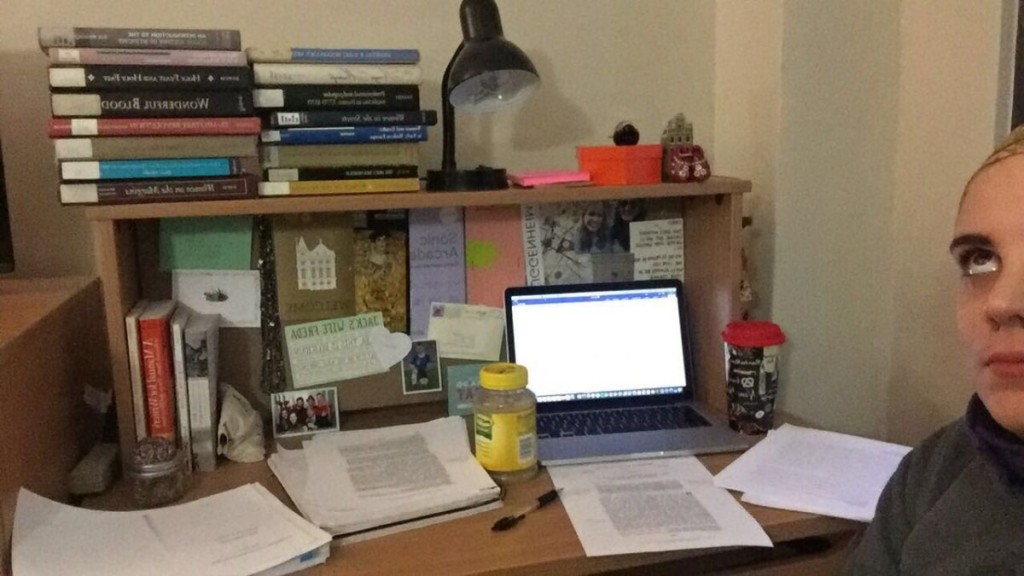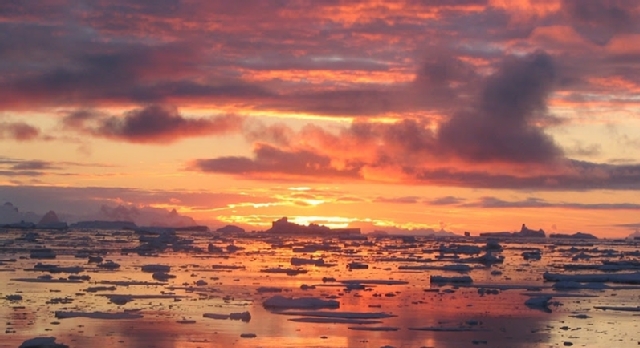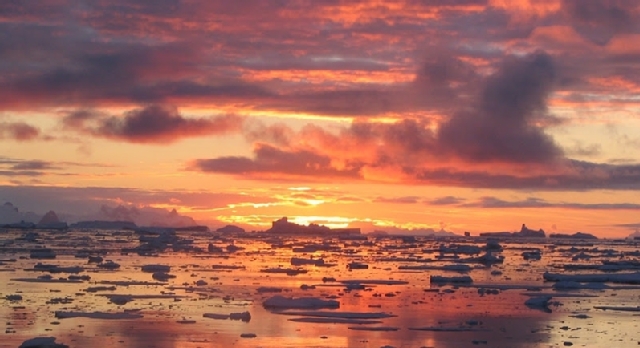Page 17 • (205 results in 0.045 seconds)
-

Thinking about graduate study in history? Pacific Lutheran University history majors have an excellent track record when it comes to earning an M.A. or a Ph.D. (or both) in history. I recently touched base with Carli Snyder, ’17, about her first year in grad school.…
Women’s and Gender Studies & Holocaust and Genocide Studies at PLU, in addition to her History major. She was well-prepared for graduate school elective courses like “Human Rights and Nation States,” and “Sex, Society, and Politics in Post-1945 Europe.” As Carli puts it, in those classes and her year-long required historical literature survey and required research seminar,” I was able to utilize and build upon the intellectual base I formed at PLU and was challenged by fresh perspectives, a new peer
-
Robin and Collin (pictured in 2017) were PLU students and, eventually, became spouses. Now, Collin is back as a professor. In Fall 2017, PLU’s Department of Languages and Literatures welcomed visiting lecturer Collin Brown. Professor Brown is teaching first semester Norwegian as well as Writing…
PLU students. × “You could say that the entire reason I’m here is because of her.” Professor Brown describes himself as a big horror movie fan and recently co-wrote (with Matthew Anderson, MA, from the University of Austin at Texas) an academic article on religious narratives in Ghostbusters (1984). As Professor Brown explains, you can go through the spiritualist literature of the 19th and 20th century and find five prevailing views/opinions on the spiritualist movement. “We basically analyze
-
In March 2020 PLU shifted to online learning in response to the COVID-19 pandemic. “How will classes work? Will there still be group projects? Will Capstone presentations still happen? How long will it be like this?” These are just some of the questions students and…
literature and history, says “I basically do all my research on the internet, the PLU library database list is my best friend right now.” Regardless of whether students currently reside on or off campus, they find a use for Mortvedt Library’s resources. But as useful as the library is, in the Humanities there’s also great merit to be found in the input of one’s peers. James notes that “interacting with other students is super useful.” Discussion and collaboration might seem harder to partake in during
-

Spring is almost here. We just set our clocks forward an hour and throughout this semester students will have plenty of master classes to anticipate with an incredible variety of guest artists from disciplines. Keep reading to hear about the talented musicians, educators, and composers!…
resources, and how to choose literature for elementary choirs. Nicole Laborte, who spoke with our students last semester, will return to discuss teaching strategies and tools for teaching virtually. Guy Kovacs, principal at Kalles Junior High School in Puyallup, will speak on how to find teaching jobs and ace an interview. He has been recognized as Middle School Principal of the Year and is loved by his students and staff. PLU alumna Helene Beck will present on teaching elementary general music
-

Antarctic sunset. Photo taken by Samantha Dillon. Resource 2012 Wang Symposium: Our Thirsty Planet Wang Symposium: Activist fights to preserve the precious resource of water By Barbara Clements Maude Barlow didn’t start out interested in water. Nothing of the sort, she recalled recently from her…
English literature. Since that epiphany, Barlow has become a leading voice on water conservation and the view that it is a resource that should be conserved and administered as a public, not private resource. Maude Barlow She has authored 16 books, including “The Politics of Water”, “Blue Gold” and her most recent book “Blue Covenant” (2007, The New Press). Barlow is the recipient of 11 honorary doctorates as well as many awards, including the 2005 Right Livelihood Award (known as the “Alternative
-

“An Antarctic Sunset” taken by PLU student Samantha Dillion in 2006 during J-Term study away in Antarctica. Wang Symposium 2012: Water warrior fights to save our most precious resource By Barbara Clements Maude Barlow didn’t start out interested in water. Nothing of the sort, she…
fresh eyes,” said Barlow, who has a degree in English literature. Maude Barlow Since that epiphany, Barlow has become a leading voice on water conservation and the view that it is a resource that should be conserved and administered as a public, not private, resource. She has authored 16 books, including “The Politics of Water”, “Blue Gold” and her most recent book “Blue Covenant” (2007, The New Press). Barlow is the recipient of 11 honorary doctorates as well as many awards, including the 2005
-

Washington, D.C. (March 20, 2017)- When Scott Foss ’91 enrolled at Pacific Lutheran University, he dreamed of becoming a paleontologist and pursuing a career outdoors conducting research. Now, he’s a senior paleontologist at the Department of the Interior. Foss serves as a policy adviser and…
at PLU and have stayed in contact with the faculty throughout my career. I knew I wanted to become a paleontologist by the time I arrived on campus. I’ve always been interested in a lot of different things, and I was able to pursue them at PLU, knowing that I would eventually have to set them aside to focus on paleontology. I took a lot of classes to do with art, writing and literature coursework. I also played tuba in the wind ensemble and the crazy pep band PLU had back then, known as “commando
-
Spring, 2022 This issue marks an important transition for the Division of Humanities. As of this summer, the Humanities programs —English, Languages & Literatures, the Language Resource Center, the Master of Fine Arts in Creative Writing, the Parkland Literacy Center, Philosophy, and Religion— will merge…
humanities can and should learn from the living presence and complex reality of non-human animals. And the “intellectual and aesthetic transformations” that our teaching makes possible are reflected in the pedagogical insights of professors Jen Jenkins and Kirsten Christensen, who explain their interdisciplinary approach to teaching the literature and cultural history of the German-speaking world. The Energizing Challenge of Diversity In 1993, Dean Paul Menzel noted the division’s concerted efforts to
-
Originally Published 1999 “The Artist, the thinker, the hero, the saint —who are they, finally, but the finite self radicalized and intensified? . . . The difference between [them] and the rest of us . . . is a willingness to undergo the journey of…
the kind of knowing that cannot be unknown. For our students this is a process of reconstituting themselves as human beings, a process of disintegration and reintegration, for some welcome, for others not. For all, however, it is a process that usually involves their experiencing a sense of tension and even betrayal of family, peer group, social class, ethnic community, religious denomination, or political ideology. Whether and how students negotiate this process depends on many things: among them
-

Audrey Borloz ’24, Fani del Toro ’24, Aidan Donnelly ’25, Grady Lemma ’25, and Angela Rodriguez Hinojosa ’24 spent the summer focused on synthesizing organic compounds called antenna ligands for lanthanide ions. When these molecules interact with specific ions like europium(III) or terbium(III), they exhibit…
requires.” “We spent a lot of time researching literature experiments to gain familiarity with the reactions we planned to run. In my case, they rarely went according to plan, but I learned something each time, which helped guide me toward the next step.” "These lessons extend outside the lab, and this kind of continuous learning and reevaluation is helpful in both academic and professional contexts," stated Lemma. Professor Yakelis and Donnelly working together in open lab in Rieke Science Center
Do you have any feedback for us? If so, feel free to use our Feedback Form.


